Life
Sign up for our newsletter
We summarize the week's scientific breakthroughs every Thursday.
-
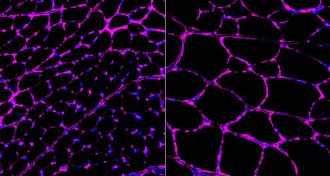 Genetics
GeneticsCRISPR/Cas9 can reverse multiple diseases in mice
A new gene therapy uses CRISPR/Cas9 to turn on dormant genes.
-
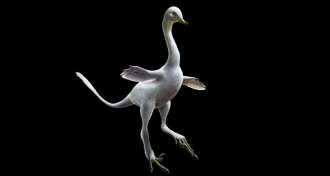 Paleontology
PaleontologyThis new dinosaur species was one odd duck
Weird dino swimmer had flipperlike limbs and a swanlike neck.
-
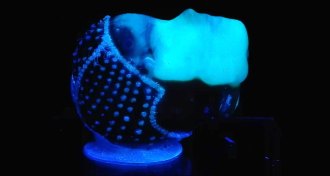 Materials Science
Materials ScienceNew 3-D printed materials harness the power of bacteria
The three-dimensional materials contain live bacteria and could generate wound dressings or clean up pollutants.
-
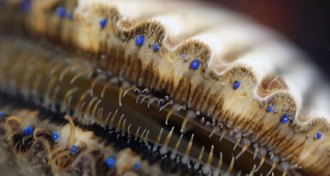 Animals
AnimalsScallops’ amazing eyes use millions of tiny, square crystals to see
Each of a scallop’s many eyes contains an intricate mirror made from millions of crystals.
-
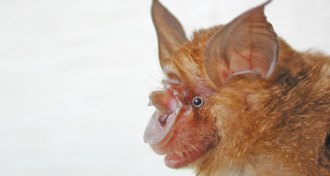 Genetics
GeneticsBats in China carry all the ingredients to make a new SARS virus
Viruses infecting bats could recombine to re-create SARS.
-
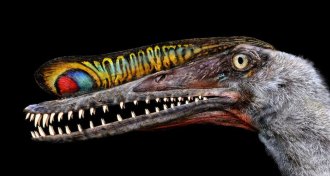 Animals
AnimalsJackpot of fossilized pterosaur eggs unearthed in China
A treasure trove of pterosaur eggs and embryos gives tantalizing clues to the winged reptile’s early development.
-
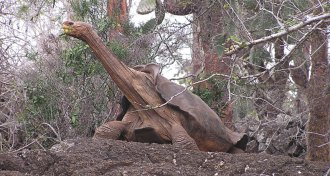 Animals
AnimalsStudying giant tortoise flips without tipping the animals over is a delicate business
Giant tortoise shells go domed or saddlebacked, but which is better when navigating treacherous ground?
By Susan Milius -
 Life
LifeReaders debate ethics of resurrecting extinct species
Readers raised questions about using gene editing tools to bring species back from the dead.
-
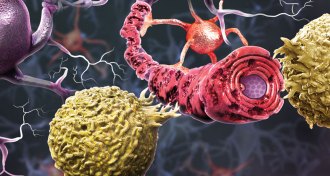 Neuroscience
NeuroscienceScientists are seeking new strategies to fight multiple sclerosis
Facing so many unknowns about multiple sclerosis, researchers explore the immune system, the neurons and the gut to fight the disease.
-
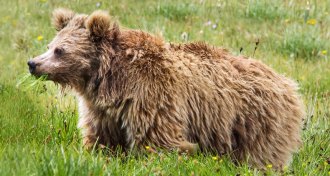 Animals
AnimalsHere’s yet more evidence that the mythical yeti was probably a bear
A more complete genetic analysis amps up the evidence that the legendary creatures known as yetis are actually bears.
-
 Health & Medicine
Health & MedicineTestosterone may be one reason why men don’t get asthma as much as women
Adult women have higher rates of asthma than men, and testosterone’s effect on the immune system may partly explain that difference.
-
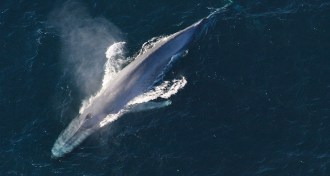 Animals
AnimalsMost blue whales are ‘righties,’ except for this one move
Though many blue whales tend to be “right-handed” when hunting for krill, one specific barrel roll move requires a lefty twist.